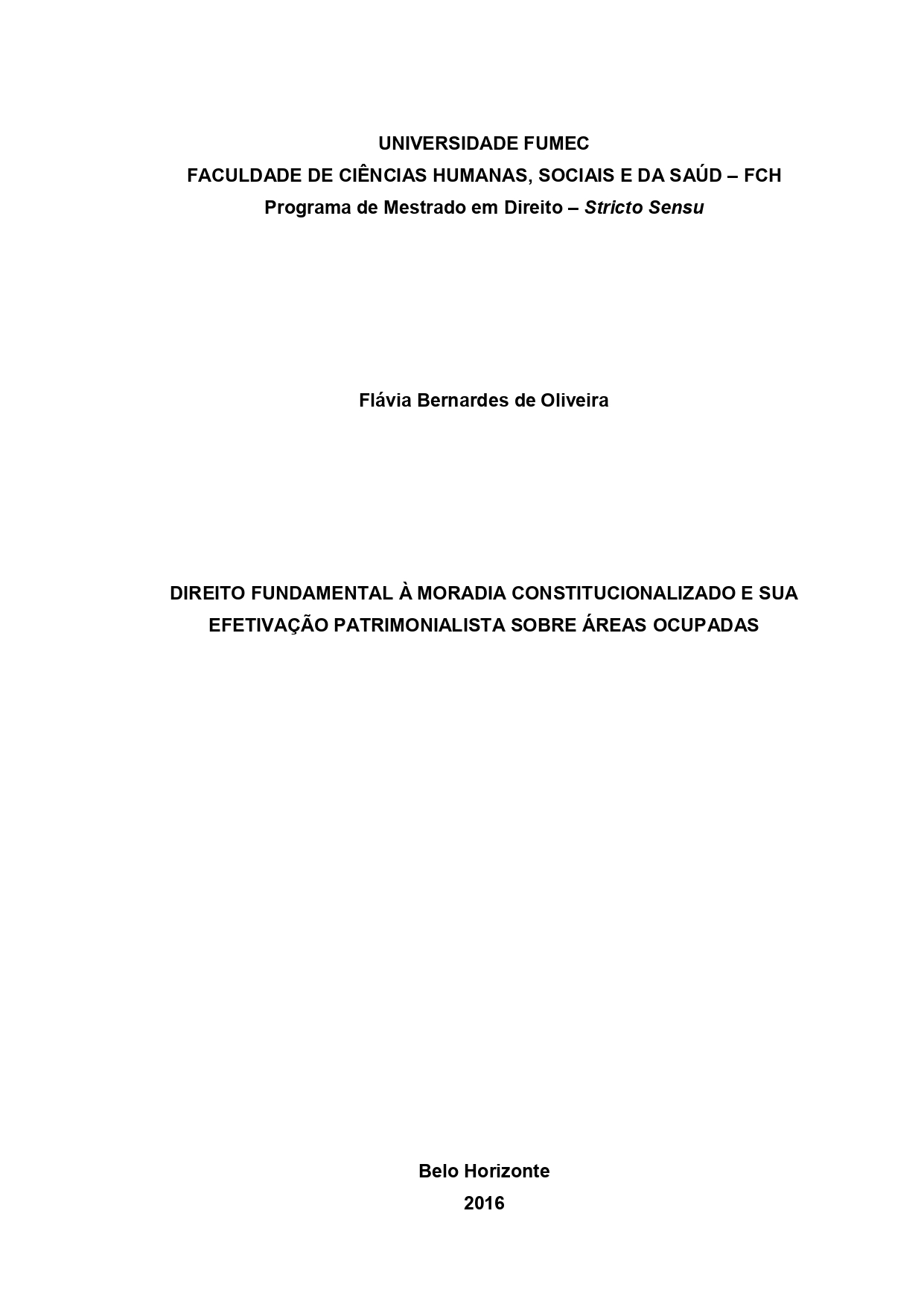Direito fundamental à moradia constitucionalizado e sua efetivação patrimonialista sobre áreas ocupadas

Visualizar/
Data
2016Autor
Oliveira, Flávia Bernardes de
xmlui.mirage2.itemSummaryView.MetaData
Mostrar registro completoResumo
O direito à moradia, por influência do Direito Internacional, exposto brevemente
neste trabalho como pano de fundo histórico, se inseriu no contexto constitucional
nacional com status de direito fundamental, no âmbito dos direitos sociais, por meio
de emenda constitucional. A atual preocupação com a efetivação desse direito, entre
as várias possibilidades, leva a diversas iniciativas legislativas, destacando-se a Lei
nº 11.977/2009, que tratou de regulamentar a regularização fundiária e inovou com a
instituição da usucapião administrativa. Estuda-se a relação entre a moradia, a
propriedade e a função social. Verifica-se a possibilidade de efetivar o direito
fundamental à moradia, agora constitucionalizado, sobre áreas já ocupadas,
irregularmente, por meio da titulação patrimonial. Explora-se a patrimonialização
como forma eficaz e desejável de acesso à moradia. Por meio de revisão
bibliográfica sobre o tema, juntamente com uma análise crítica da Lei nº
11.977/2009, pretende-se averiguar o potencial teórico de implementação e manejo
dos novos instrumentos propostos. Faz-se, ainda, breve relato sobre a experiência
concreta obtida com a aplicação da referida lei no Município de Osasco (SP), como
forma de comprovar que tem sido utilizada na realidade e que há resultados eficazes
para a sociedade em sua aplicação. The right to housing, under the influence of international law, briefly exposed in this
paper as a historical background, has been inserted through an amendment in the
national constitutional context with the status of a fundamental right amongst the
social rights. The current concern with the realization of this right, among various
possibilities, leads to a number of legislative initiatives, among which stands out the
Brazilian Law No. 11,977/2009, which predicts land titles regularization and
innovates by introducing an administrative form of prescription. The relationship
between housing, property and the social function is also studied. The possibility of
carrying out the now constitutionalized fundamental right to housing on lands
irregularly occupied by giving ownership over the land is exploited in this study. It
explores the patrimonialization as an effective and desirable form of access to
housing. Through literature review, as well as a critical analysis of Law No. 11,977 /
2009 aiming to determine the theoretical potential for implementation and
management of the proposed new instruments. There is also a brief report on the
practical experience obtained from the application of the law in the city of Osasco
(SP) as a way to prove that it has been used in reality and that there are effective
results for society in its implementation.
